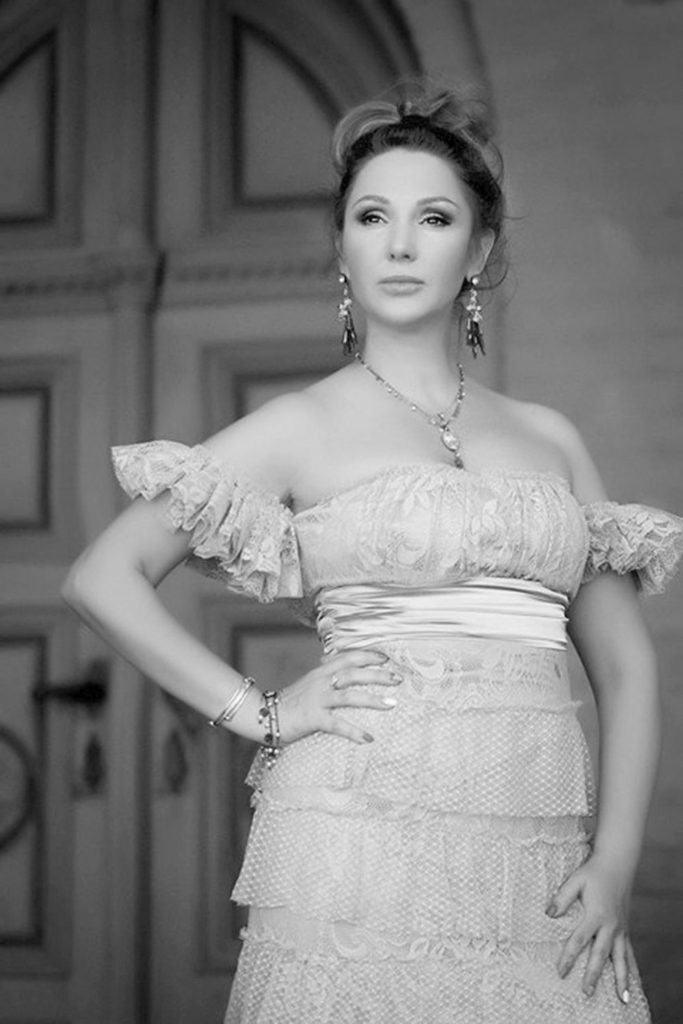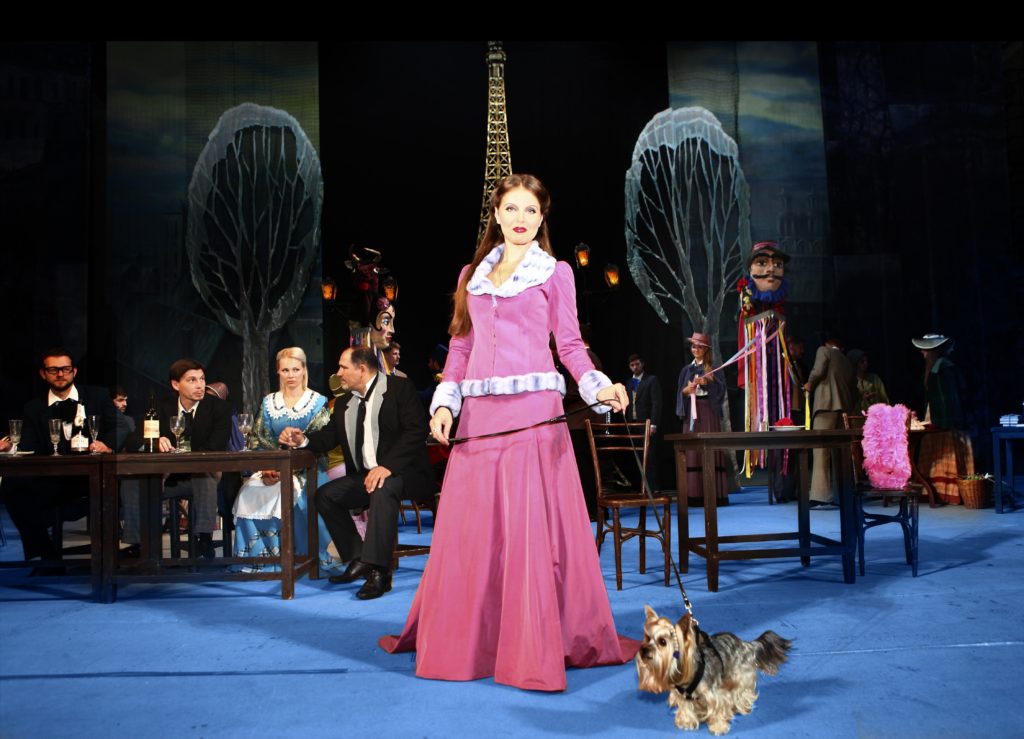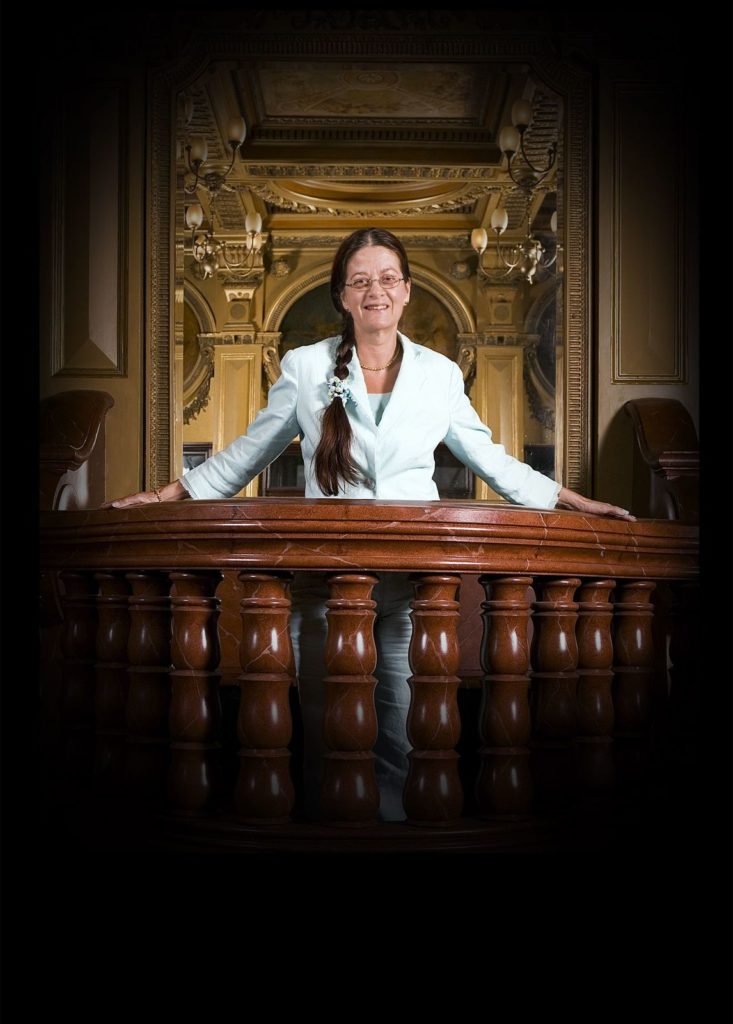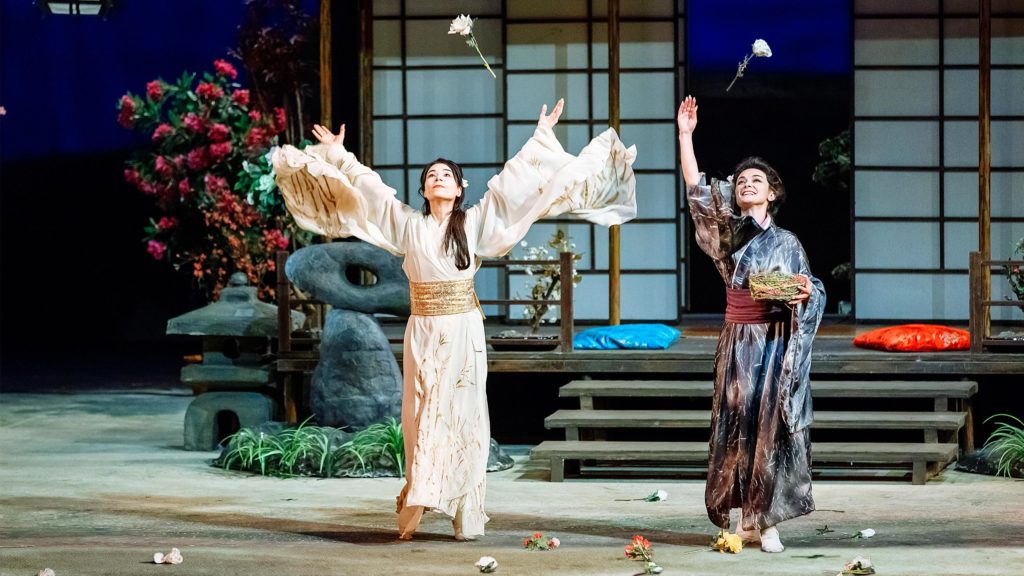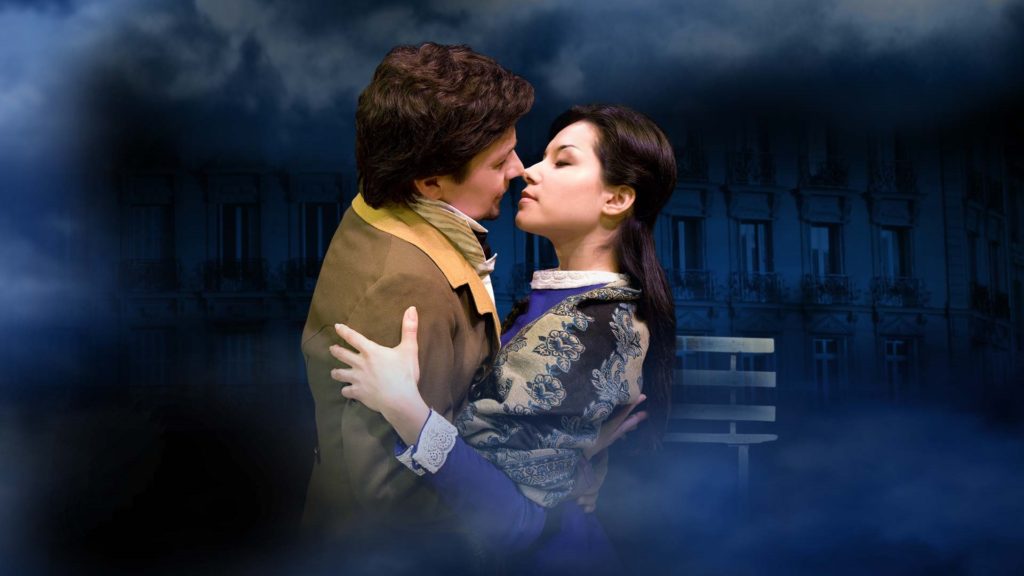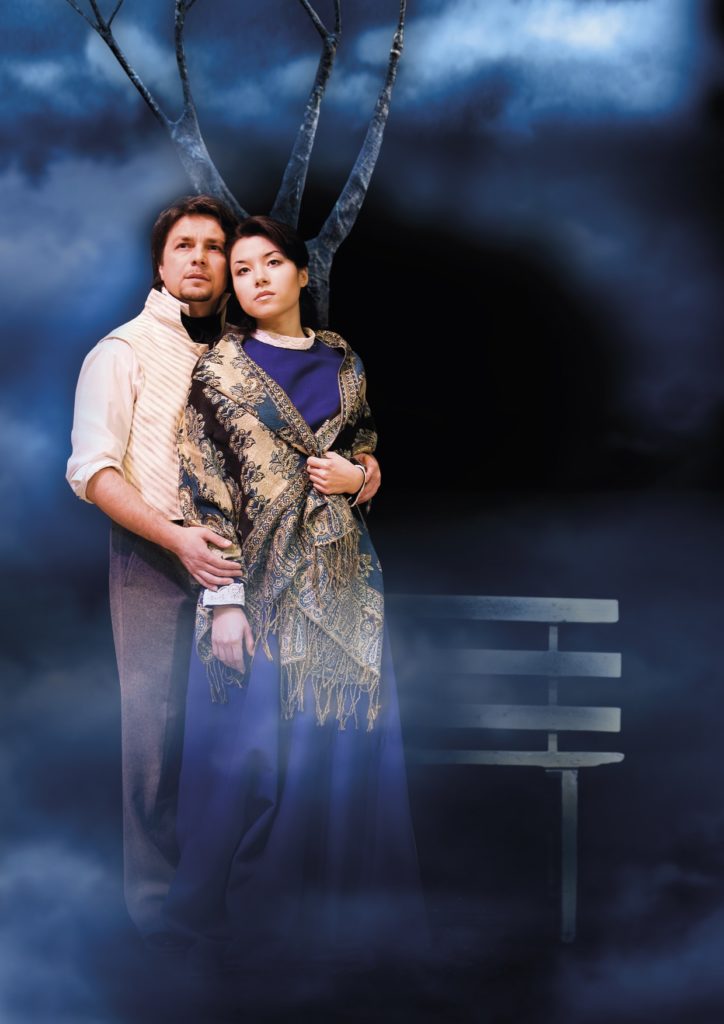
Ukrainian Opera & Ballet Theatre, Kyiv, in La Bohème and Madama Butterfly, Grand Opera House, York, February 3 and 4
FOR nearly four decades, Ellen Kent has been bringing foreign opera and ballet companies to Britain, mainly from Eastern Europe. She has now additionally turned her hand to directing.
Under her aegis, Ukraine’s flagship company is touring the United Kingdom and Ireland between late January and early May, with Aida in repertory with the two productions here.
It would have been a marathon undertaking at the best of times. War at home makes it no easier. So it was to be expected that the company would play it safe. Still, this was a very respectable effort.
Neither of the lovers was in their best form in Act 1 of La Bohème. Korean-born Elena Dee, now resident in Italy, lacked focus as Mimì initially, but improved spectacularly until delivering some beautifully controlled tone in the final act. Her progression from naïve hesitation to love-induced dependency was nicely calculated.
The same could not be said for Vitalii Liskovetskyi’s Rodolfo. His Act 1 attacks were idle, approaching every phrase from slightly under the note and departing every high note almost before he had reached it. Nor was there much electricity in his interest in Mimì.
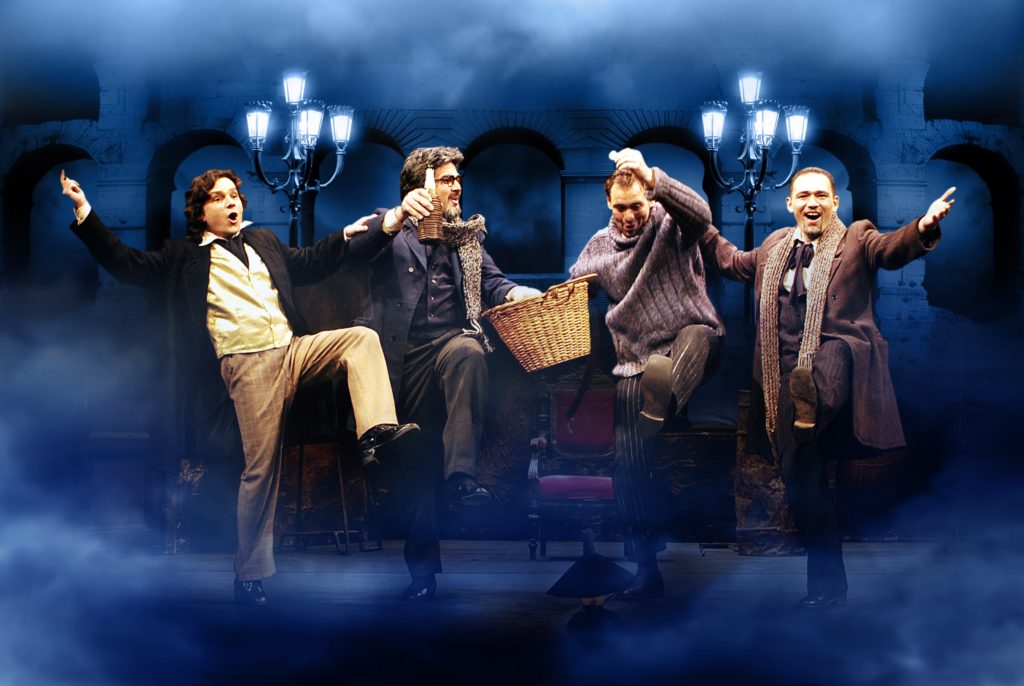
He must have been given a pep-talk after Act 2, because he was unrecognisable thereafter, singing with a purity of phrase that had previously eluded him. By the end he was fully engaged – but he had taken his time.
Olexandr Forkushak made a forthright Marcello, indeed he rarely sang below forte, but he cut a strong presence. The French soprano Olga Perrier was his vivacious, willowy Musetta, strutting and posing like a would-be celeb and really lighting up Act 2, although her relationship with Marcello there could have been give more emphasis. Vitalii Cebotari was a warm, confident Schaunard, with Valeriu Cojocaru a more diffident Colline.
Children from Stagecoach Theatre Arts York were brought in for Act 2, although their song was taken by the chorus ladies: a sensible use of local talent that was to be repeated around the circuit.
Kent needed to think harder about the opera’s comic moments, especially the by-play with the landlord and the Act 4 hi-jinks, which lacked sufficient spontaneity to spark real pathos when disaster struck.
Vasyl Vasylenko, the company’s permanent orchestra director, conducted with a good feel for momentum, steering well clear of sentimentality.
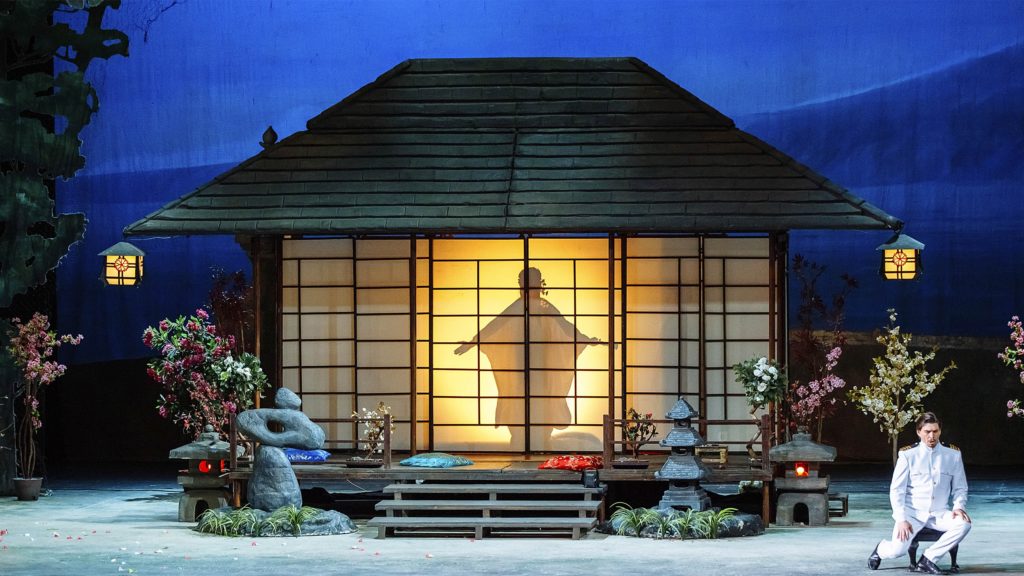
Madama Butterfly was not quite on the same level. One understands that younger Ukrainians are largely engaged on military assignments, but when Pinkerton, rather than an ardent young lieutenant, is old enough to be Cio-Cio San’s father and looks as if he should be at least a commodore if not a rear admiral, disbelief is not willingly suspended.
Although we could not appreciate her interest in him, Alyona Kistenyova’s Cio-Cio San was appealingly innocent, only introducing steel into her tone when realising that she had been betrayed. Even more engaging was Natalia Matveeva’s sharply observed and keenly attentive Suzuki.
Sorin Lupu’s days as Pinkerton must surely be numbered, given that his tenor showed signs of fraying at the edges. Olexandr Forkushak was back as a determined Sharpless, moderating his dynamic levels as he had not done as Marcello. Ruslan Pacatovici was a busybody Goro and Anastasiia Blokha a striking Kate.
Vasylenko was back in the pit, but this time lacking some of the urgency he had shown in Bohème, but orchestral ensemble remained cohesive.
At the end of each opera, after the first few bows, a Ukrainian flag was unfurled and the national anthem sung, a moment of high poignancy that provoked even more resounding applause in each case.
On tour until May 8. Northern dates include Sunderland Empire (La Bohème, February 24 and Madama Butterfly, February 25), Alhambra Theatre, Bradford (La Bohème, March 16; Madama Butterfly, March 17m, and Aida, March 18) and Sheffield City Hall (Aida, April 29). Box office: www.ticketmaster.co.uk
Review by Martin Dreyer
